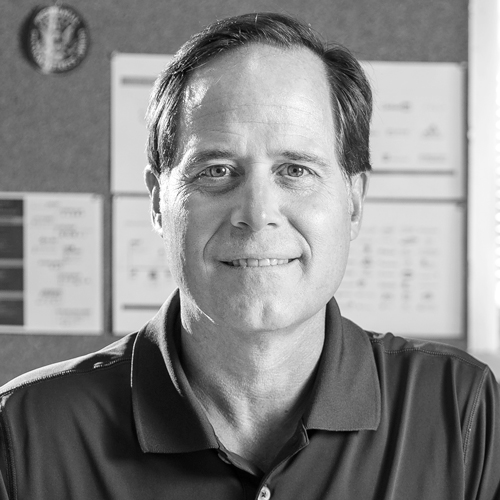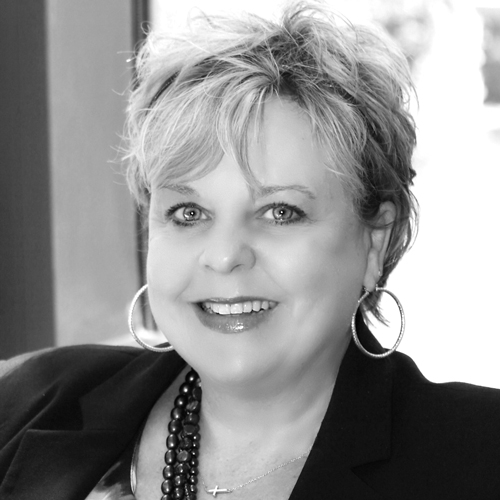Offering quality patient care combined with research and education, Nebraska Medicine has become one of the most esteemed medical centers in its region. With the clinical integration of the Nebraska Medical Center, Bellevue Medical Center, and UNMC Physicians, the organization provides access to more than 1,000 physicians and 676 licensed hospital beds, all exemplifying the promise of “Serious Medicine. Extraordinary Care.” In order to maintain this high standard, chief human capital officer Frank Venuto works to keep waste out of the formula and ensure the talented workforce feels supported and valued.
Your official title is chief human capital officer. What do those words mean to you?
Frank Venuto: Using the term “human capital” reflects an innovative way of thinking about your workforce. What makes any company flourish is its people and the collective genius they bring; they make an organization come alive and have either a positive or negative impact on patients. There is no replacement for high-accountable talent, and it should be treated as any other business asset. To grow as a healthcare system, you must invest in your people, just like you would for other priorities, such as infrastructure or technology. By making an investment in employees, you not only ensure that their skills are specialized, so that they can take the best possible care of patients, but you also send them an important message—that they are valued, cared about, and supported.
How does this perspective differ from traditional HR?
Venuto: Decades ago, HR fulfilled more of an administrative function. It was tactical, less solutions-oriented, and revolved more around policy rather than functioning as the strategic business partner it has become today. I would say that Nebraska Medicine’s HR is more connected to operations now than it has been in the past. We deliver a strategic orientation to our work, assessing whether our policies, practices, and culture of today will hinder or aid in moving our organization into the future, and we course-correct accordingly. By making sure that we are delivering workforce solutions for both our colleagues and management teams, we ensure that the health system continues to deliver on our brand promise of “Serious Medicine. Extraordinary Care.” We are making great strides. One of our leaders told me that one year ago, he never would have thought about having HR at the table to discuss our business problems. Today, he couldn’t think of why he wouldn’t. That’s the partnership we are after.
“If you can touch the hearts and minds of your employees and let each individual know that he or she is important to your collective success, then ultimately our patients will benefit.”
You mentioned that HR professionals previously served in more administrative roles. How do you position HR as a strategic player in the organization?
Venuto: The key is to demonstrate the value and return for investing in your workforce and to communicate that investment in the same business terms that organizational leaders consider for other strategy and operational decisions. But HR’s reach is more than just demonstrating your business acumen. You have to partner with your chief transformation officer and patient experience officer to build a single corporate culture and a leadership strategy to support it.
For example, we are currently focused on recruitment and retention of top talent, especially as we are staffing our new Fred & Pamela Buffett Cancer Center. We are improving our entire selection process, from candidate sourcing to one-year onboarding. We are simultaneously working on reducing the cycle of our time-to-fill and improving the retention of our first-year colleagues. We expect to achieve significant savings in the cost of agency labor, premium pay, and turnover, while improving the quality of our hires. Importantly, this work bleeds into managing our colleague experience and putting effort and energy into our human capital, similar to the way we focus on our patient experience. Research shows that if great employees leave their organization, it’s because of their managers; high-accountable talent wants to work with other high-accountable talent.
We are focusing on the development of our front line and management talent while creating the proper systems of accountability to maintain top talent. We have to improve ourselves as an employer and position ourselves to compete for great healthcare talent.
In the healthcare industry, staffing remains a top concern—especially as aging baby boomers demand more care. How has Nebraska Medicine worked to improve its employee relations?
Venuto: We know that the makeup of our workforce is evolving. Our employees span several generations and each generation has unique needs. Nebraska Medicine has to position itself to provide benefits and support that meet employees at their current life stages. The average age of our employees is mid-thirties, but those employees’ needs are significantly different from employees in their sixties. We are focused on individualizing our benefit offerings to cater to the priorities of our colleagues and educating them accordingly. This innovative way of thinking makes us a better employer and better place to work.
Also, we are being proactive in listening to our high-achieving employees through focus groups, advisory councils, forums, and roundtables with senior leadership. Because of their input, Nebraska Medicine offers career development support that did not exist twenty or thirty years ago. Nebraska Medicine has grown through a series of mergers and integrations with other healthcare organizations. One of the results of this growth was a combination of various wage programs that needed to be rationalized. The inequity was causing great dissension among our colleagues and creating distrust for our leadership.
Consequently, leadership agreed to address significant compression issues and a three-year plan was developed and communicated. We recently added $60 million to our compensation program to ensure that every employee is paid in accordance with their experience, education, and performance. While the investment was significant to reach market competitive rates, the larger message was equally as important: our staff saw evidence that we listened and acted, remaining true to our word. Since this important investment, we’ve had less than a handful of nurses turn down our offer due to pay and we’ve also seen a reduction in our turnover.
What keeps you motivated as a healthcare leader?
Venuto: I am just like the majority of all employees—it’s not just about a paycheck. I strongly believe in the vision of Nebraska Medicine and its ability to positively impact our patients, their families, and our community. That is the same motivation that I hope to instill in our entire workforce by showing that their work is meaningful and their contributions are recognized and appreciated. If you can touch the hearts and minds of your employees and let each individual know that he or she is important to your collective success, then ultimately our patients will benefit


